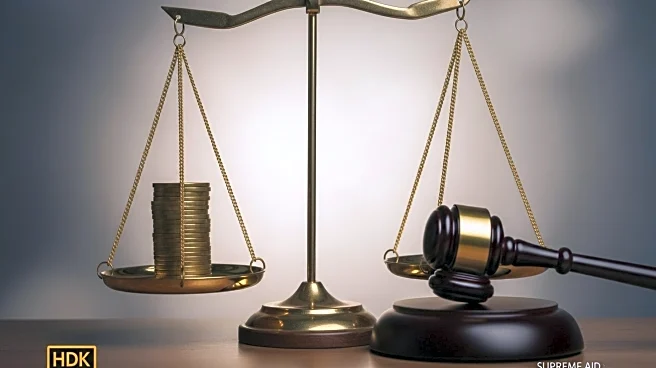What is the story about?
What's Happening?
The Supreme Court has extended an order allowing President Trump’s administration to keep nearly $5 billion in foreign aid frozen, marking a significant victory in a dispute over presidential power. The conservative majority of the court granted the administration's emergency appeal, despite dissent from the three liberal justices. This decision stems from Trump's announcement last month to withhold the funds, invoking a rarely used authority. The legal battle involves funds Congress had already approved, and the administration's maneuver has been challenged as potentially illegal by U.S. District Judge Amir Ali. The case highlights Trump's broader push to reduce foreign aid, raising concerns about America's global reputation.
Why It's Important?
The Supreme Court's decision underscores the Trump administration's reliance on emergency appeals to achieve major policy goals, affecting the separation of powers between the executive and legislative branches. Critics argue that this pattern blurs the line between judicial review and presidential power consolidation. The ruling allows Trump to maintain control over contested legal battles, potentially impacting America's foreign aid commitments and its global standing. The decision also raises questions about the executive branch's ability to withhold congressionally appropriated funds, challenging the traditional checks and balances system.
What's Next?
The legal battle will continue in lower courts, but the Supreme Court's intervention ensures the funds will remain frozen as the case progresses. The administration plans to spend another $6.5 billion in aid before the fiscal year ends, but the $4.9 billion at the center of the lawsuit is unlikely to be distributed. The ongoing litigation will test the limits of presidential authority over foreign aid and could set a precedent for future executive actions.

















